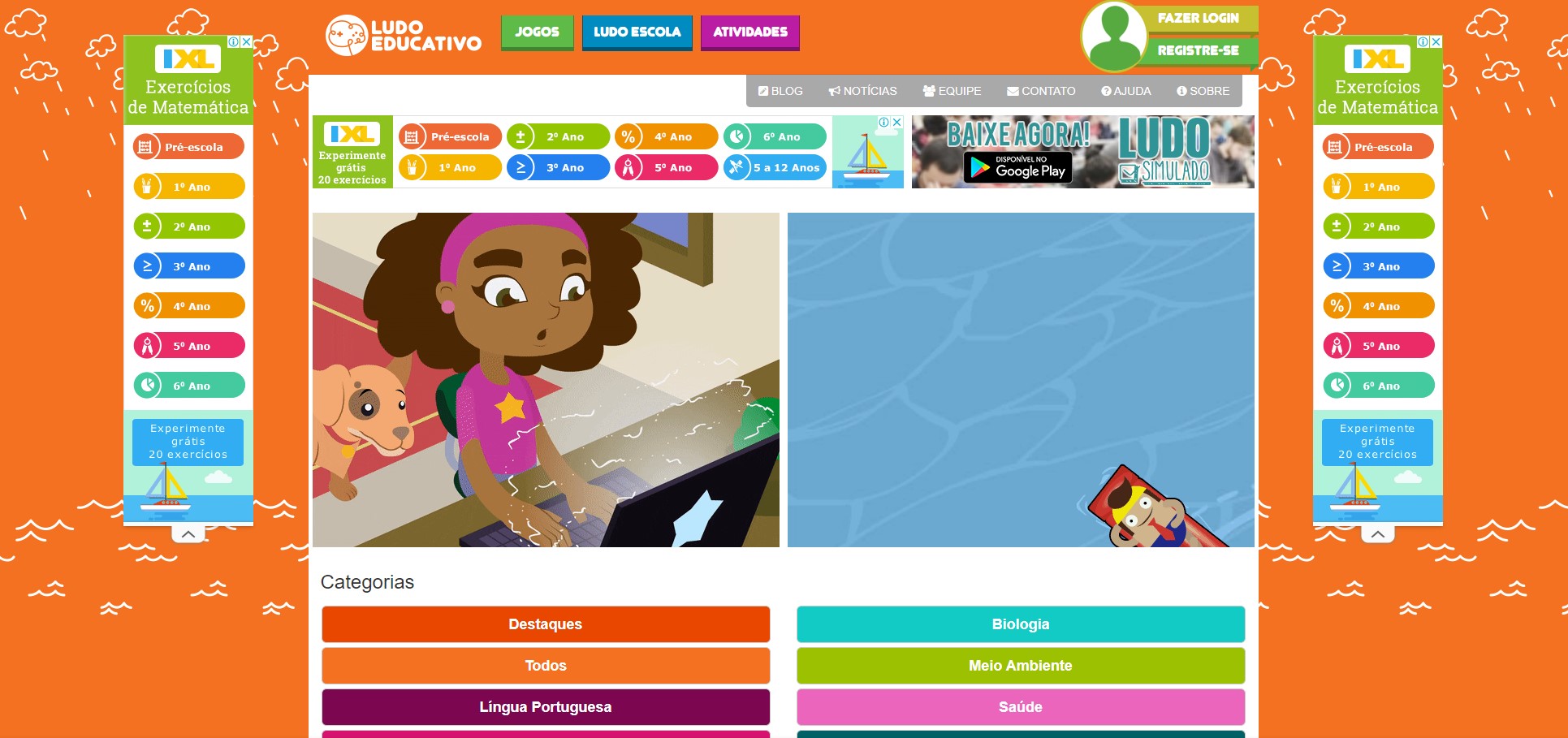

Currently, around 50 are accessible to the public, covering various areas of knowledge (image: reproduction)
Dissemination project of the Center for the Development of Functional Materials – a research center supported by FAPESP and based at the Federal University of São Carlos – is aimed at primary and secondary school students and teachers.
Dissemination project of the Center for the Development of Functional Materials – a research center supported by FAPESP and based at the Federal University of São Carlos – is aimed at primary and secondary school students and teachers.

Currently, around 50 are accessible to the public, covering various areas of knowledge (image: reproduction)
Agência FAPESP* – The virtual games portal Ludo Educativo recently surpassed the milestone of 20 million views, recorded since August 4, 2010, when the new site was launched.
In addition to educational games, the portal offers printed activities and a platform to help primary and secondary school students understand and retain content from various areas of knowledge taught in the classroom in a playful way.
This is one of the dissemination projects of the Center for the Development of Functional Materials (CDMF), carried out in partnership with Aptor Software, a spin-off (managed by the CDMF) that develops educational games and makes them available for free on the internet.
The CDMF is a Research, Innovation and Dissemination Center (RIDC) of FAPESP based at the Federal University of São Carlos (UFSCar).
Although the majority of the platform’s users are Brazilians, access from more than 180 countries has also been recorded, with Portugal in second place, followed by the United States. The six Brazilian cities that use the portal the most are São Paulo, Rio de Janeiro, Belo Horizonte, Curitiba, Brasília and Porto Alegre, respectively.
Between December 2022 and December 2023, the platform received more than 2,090,028 views, reaching an annual average of 2 million views.
Ludo Educativo has developed more than 80 games throughout its history. Currently, around 50 are accessible to the public. The older ones are in the process of being adapted to be compatible with current browsers.
The games are divided by grade/year. There are also activities for painting and drawing, as well as Ludo Escola – an area where teachers can organize courses by classroom and monitor students’ progress by creating online assessments.
* With information from the CDMF
Republish
The Agency FAPESP licenses news via Creative Commons (CC-BY-NC-ND) so that they can be republished free of charge and in a simple way by other digital or printed vehicles. Agência FAPESP must be credited as the source of the content being republished and the name of the reporter (if any) must be attributed. Using the HMTL button below allows compliance with these rules, detailed in Digital Republishing Policy FAPESP.





